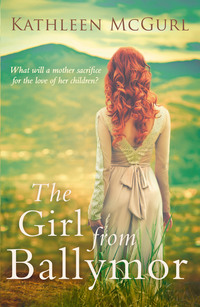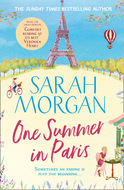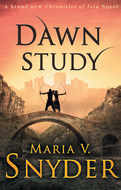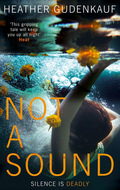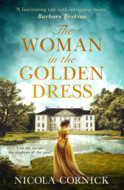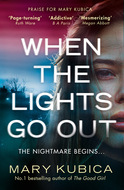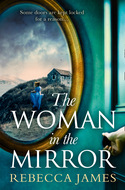Kitap dosya olarak indirilemez ancak uygulamamız üzerinden veya online olarak web sitemizden okunabilir.
Kitabı oku: «The Girl from Ballymor»
Also available from KATHLEEN McGURL
The Emerald Comb
The Pearl Locket
The Daughters of Red Hill Hall

KATHLEEN MCGURL lives near the sea in Bournemouth, UK, with her husband and elderly tabby cat. She has two sons who are now grown-up and have left home. She began her writing career creating short stories, and sold dozens to women’s magazines in the UK and Australia. Then she got sidetracked onto family history research – which led eventually to writing novels with genealogy themes. She has always been fascinated by the past, and the ways in which the past can influence the present, and enjoys exploring these links in her novels.
When not writing or working at her full-time job in IT, she likes to go out running or swimming, both of which she does rather slowly. She is definitely quicker at writing, even though the cat tries to disrupt the writing process by insisting on sharing Kathleen’s lap with the laptop.
You can find out more at her website:
http://kathleenmcgurl.com/, or follow her on Twitter: @KathMcGurl
For my sons, Fionn and Connor McGurl
Contents
Cover
Also by Kathleen McGurl
Title Page
About the Author
Dedication
CHAPTER 1: Maria, present day
CHAPTER 2: Kitty, 1848
CHAPTER 3: Maria
CHAPTER 4: Kitty
CHAPTER 5: Maria
CHAPTER 6: Kitty
CHAPTER 7: Maria
CHAPTER 8: Kitty
CHAPTER 9: Maria
CHAPTER 10: Kitty
CHAPTER 11: Maria
CHAPTER 12: Kitty
CHAPTER 13: Maria
CHAPTER 14: Kitty
CHAPTER 15: Maria
CHAPTER 16: Kitty
CHAPTER 17: Maria
CHAPTER 18: Kitty
CHAPTER 19: Maria
CHAPTER 20: Kitty
CHAPTER 21: Maria
CHAPTER 22: Michael 1849–1860
CHAPTER 23: Maria
CHAPTER 24: Michael
CHAPTER 25: Maria
CHAPTER 26: Kitty, 1849
CHAPTER 27: Maria
CHAPTER 28: Michael
CHAPTER 29: Maria
AUTHOR’S NOTE
ACKNOWLEDGEMENTS
Copyright
CHAPTER 1
Maria, present day
There was something about Ireland that made it look and feel completely different to England as I drove through it in my hire car, on the way from Dublin airport south-west towards Ballymor. I mean, the motorways were much the same except that the road signs showed place names in Irish as well as English, and the distances were given in kilometres. And the fields and woods either side of the motorway were green and lush, as they would be back home during a rainy summer. But there was something foreign about it all that I could not quite put my finger on.
Perhaps it was to do with the way houses were dotted randomly across the landscape, whereas in England they’d all be grouped into villages, apart from the odd farmhouse. Or was it the ubiquitous whitewash of the cottages, or the colourful shopfronts and lack of chain stores in the small towns I passed through once I’d left the motorway and headed deep into County Cork.
I found myself pondering all this as I drove onwards. Anything to take my mind off the last conversation I’d had with my boyfriend Dan, just before I’d left for the airport that morning. I wanted to blot the memory of his expression of disappointment and hurt from my mind. And there was the other thing I wanted to forget all about as well, during this trip. I’d deal with it all when I went back home. This week was to be purely about me-time.
After all, it wasn’t as though Dan hadn’t had fair warning I would be going on this trip. I’d been talking about the possibility of doing it for ages. I’d originally suggested that he might come along as well, but he’d said no, he couldn’t take that amount of time off from his job. I was disappointed at first that I’d be on my own, but after what had happened I was relieved. It’d be good to have the time and space on my own to get my head straight.
Anyway, it’d be easier to concentrate on my research into my ancestor Michael McCarthy without Dan around.
*
It was late afternoon, the weather overcast but thankfully not raining, when I finally drove into the pretty little town of Ballymor in west Cork. My online research had described it as a typical small town in the south-west of Ireland, nestled amongst bleak moorlands and craggy hills, about ten miles from the coast. I easily found O’Sullivan’s pub and guest house, where I had booked a room for the next ten days. It was the nearest accommodation to Michael McCarthy’s place of birth I’d been able to find. The pub was situated in the middle of town, opposite an old, grey-stone church, just off the central square. Next door was a bookmaker’s, then a gift shop, both with brightly painted shopfronts, then a small branch of Dunnes Stores in a more modern building. There were a couple of parking spaces in front of O’Sullivan’s. One was free so I pulled into it and heaved my luggage out of the boot. The pub had two bow-fronted windows with leaded glass, with a door to the side and an Irish tricolour hanging from a pole mounted between the first floor windows. I looked upwards, wondering if one of those windows would be my room. It was clearly a very old building, with warped windows and a wonky roof line, but it looked welcoming and comfortable – just what I needed right now. Maybe Michael McCarthy would even have drunk a pint or two here, in his time.
Inside, the pub was dark, with low ceilings and a long polished bar set against the back wall. Mismatched wooden tables and chairs were dotted around on a stone-flagged floor. A huge fireplace dominated one wall, but being midsummer it was not lit. I imagined it would be very cosy in here on a winter’s night, perhaps with a few musicians sitting in the corner, playing tin whistle, bodhrán, fiddle and accordion, sipping pints of Guinness between sets. Clichéd west-of-Ireland image I know, but, to be honest, that’s exactly what I was hoping to find. Something a million miles away from my usual life in London with Dan.
Today, the bar was deserted apart from one whiskery old man, wearing a worn black suit over a frayed sweater, who was sitting on a bar stool. He glanced in my direction, looked me up and down and took in my luggage, then without saying a word shuffled off his stool and disappeared through a door beside the bar. A moment later, he reappeared and climbed back onto his bar stool. He nodded at me and took a deep pull of his pint. Guinness, I was pleased to see. A youngish woman of about my own age followed him and came straight over to me, her hand stretched out.
‘Welcome, welcome! You must be Maria McCarthy, here to stay with us, so you are. I’m Aoife, the landlady here. I’m sorry there was no one here when you arrived. Did you have a long journey?’
I smiled. She seemed nice, her curly brown hair bouncing around as she shook my hand, her Iron Maiden t-shirt with its screaming skeletal figure at odds with her friendly, open expression. ‘Yes, pretty long. I flew from London to Dublin and drove from there.’
‘Ah, it’s a tidy way from Dublin, sure it is. You’ll be wanting a cup of tea, now. Or something stronger? What can I get you?’ She bustled behind the bar ready to get whatever drink I requested.
‘Tea, for the moment, please,’ I said.
‘Tea, that’s grand,’ she replied, and went through to the back, presumably the kitchen, to make it.
I sat down at a small table by one of the windows, and put my bags on a chair. The old fellow at the bar watched in silence, taking occasional sips of his pint. I smiled at him, wondering how to start a conversation. I was still pondering this when the door opened and a young man entered. He was tall, sandy haired, wearing an open-necked shirt and jeans.
‘Paulie! How’re ye? Aoife about, is she? I’m parched.’ He clapped a hand on the old man’s shoulder. The old fellow – Paulie, I guessed – raised a bushy eyebrow in my direction and the newcomer turned, seeing me for the first time. He smiled, and approached the table. ‘Hello! Ah, looks like you are a new guest here, staying in O’Sullivans? Is anyone looking after you?’
‘Yes, someone’s fetching me a cup of tea,’ I replied.
‘That’ll be where Aoife’s got herself to, then. Sure and I’ll have to wait for my pint. Declan Murphy,’ he said with a smile, holding out his hand to shake.
I took it. His grasp was firm, and now he was close, I could see he had startlingly blue eyes and a smattering of freckles across his face. ‘Maria McCarthy. Nice to meet you.’ His warmth and geniality reminded me with a pang of Dan, back home in London. My lovely Dan, who I’d left behind.
‘McCarthy – now that’s a local name, but you don’t sound at all local, sure you don’t.’
‘No, I’m visiting from England. But my ancestors were from here. Well, near here, anyway.’
His eyes lit up with interest. ‘Oh, really? Are you researching them?’
At that moment Aoife arrived with my tea, and a selection of cakes, which she put on the table in front of me. ‘Now. You’ll be needing more than tea after your long drive. When you’ve eaten that I’ll show you up to your room. No hurry. There’s never any hurry here, you’ll be discovering that. Declan, what can I get for you?’
‘At last!’ He grinned. ‘Thought you’d never ask. I’ll have a pint of the black stuff, please, and another for Paulie while you’re about it.’
Paulie nodded his thanks. I was beginning to wonder if he was mute, as he’d said not a word since I arrived. Declan came back over to my table. ‘Mind if I join you?’
‘Not at all,’ I replied, through a mouthful of a delicious fruit cake. ‘And feel free to help me out with these cakes.’
‘Thank you,’ he said, taking a small scone. ‘So, where is it your ancestors are from?’
‘A small village, somewhere near here. I couldn’t find it on Google maps. Kildoolin, it’s called.’
‘Ah, Kildoolin.’ He nodded.
‘You know it?’
‘Sure, and it’s not too far away. A pleasant afternoon’s walk.’
‘Can’t I drive there?’ I didn’t mind a walk, but would rather save my energy to walk around the village rather than to it.
He shook his head. ‘There are no roads. None suitable for cars, that is. Just a track, for horse riders or walkers. And a few mountain bikers.’
I was confused. ‘What about the people in the village? How do they come to town?’
Paulie, at the bar, sniggered into his pint. Declan shot a frown in his direction then turned back to me. ‘Pay no mind to old Paulie, there. He’ll soften when he gets to know you. Always a bit shy around strangers. Don’t you know about Kildoolin?’
‘It’s just listed as the place of birth of one of my ancestors, on some censuses. Like I said, I couldn’t find it on Google maps. But one census said “Kildoolin, Ballymor, Ireland” so I thought I should start here.’
‘That was a good plan, all right. Kildoolin’s a deserted village. No one lives there any more. It was abandoned during the famine years, in the 1840s. Everyone either died or moved to the towns, and probably many of them emigrated. It’s just a collection of ruins today. Quite evocative, so it is. As I said, it’s an easy walk up there so you’ll be able to see for yourself. There’s a path leading up from the end of Church Street, just as you leave the town. You can park there or it’d only take five minutes more to walk it from here. It’s signposted –“The Deserted Village”. You can’t miss it.’
A famine village! I felt stupid that I hadn’t realised that. I’d never actually researched Michael McCarthy’s birthplace in detail. He was a Victorian portrait painter, and my great-great-grandfather. I had one of his pictures hanging above my bed back home – our bed, I should say, mine and Dan’s – and I’d come here to research more about him, as well as work out my personal problems along the way. Find my ancestors; find myself. Something like that, anyway. I felt a shiver of anticipation as I imagined walking around the ruins of a village abandoned over a hundred and fifty years ago. Michael and his family must have been among the last inhabitants of it.
‘Thanks, Declan, I’ll definitely go there. Probably tomorrow if the weather allows it.’ I glanced out of the window. It had begun to rain, just a light drizzle, but not the sort of weather you’d want for undertaking a hike across the moors.
‘You might have to put up with a bit of rain if you’re staying here in Ballymor,’ Declan said. ‘Anyway, that’s not proper rain, is it, Paulie?’
The old man shook his head and cleared his throat. ‘Ah no, ’tis a grand soft day,’ he pronounced. His voice was surprisingly soft for such a grizzled old man, with a beautiful west-of-Ireland sing-song lilt.
Soft. Not the adjective I’d use for the rain which was now beginning to run down the window. I was glad I’d brought my luggage in already and only hoped I wouldn’t need to move my car.
‘So, who were your ancestors that lived above in Kildoolin?’ Declan asked, with what looked like genuine interest.
‘My great-great-grandfather was a man called Michael McCarthy. On the UK censuses he gave his place of birth as Kildoolin, though he spent the latter half of his life living in London. He was a Victorian artist, and I’m here to research him.’
‘You must be very interested in genealogy, then?’
I smiled, suddenly feeling shy. ‘Yes, but I’m also interested in art history. I did a degree in it, and my final-year thesis was on the work of Michael McCarthy. Now I’d like to research him a bit more, find out about his life as well as his work, and write a book on him. I know he was born here, had a spell in America where he first became noticed as an artist, then settled in London, although he continued to travel for his work. He mostly took commissions – he painted portraits of the rich for money.’
‘That’s fantastic, so it is, to write a book about him. Are you an artist yourself?’
‘Sort of.’ I told him about my job teaching art at adult education classes. There was something about Declan that made him easy to talk to. He was a good listener, and managed to ask questions that drew me out without him seeming nosy. I liked him instantly.
‘You’re here on your own?’ he asked, at one point.
‘It’ll be easier to get on with the research on my own. Dan would have distracted me, and I’d have spent half the time worrying he was feeling like he was wasting his holiday. So, yes, just me.’
‘Dan’s your partner?’
‘Yes.’ I poured myself another cup of tea, keeping my eyes down.
He frowned slightly, as if my short answer had raised questions in his mind, but seemed to realise I was not going to elaborate on mine and Dan’s relationship. Although he was easy to talk to I didn’t feel I could tell him all my relationship problems within five minutes of meeting him. He took the hint and returned to asking about Michael McCarthy, a safer topic. ‘Your artist ancestor, should I have heard of him?’
‘Not really. He’s quite well known in academic circles, I suppose – if you were studying Victorian art you’d come across him. But he’s not well known to the general public. There are a few of his paintings in museums, and the National Portrait Gallery in London holds several but doesn’t often display them. I had to make special arrangements to see them when I did my degree. And I’ll need to do the same again for the book, I guess. There’s a little bit of a mystery surrounding him, actually.’
Declan raised an eyebrow. ‘Really? Go on.’
I grinned. I loved telling people this story. ‘Many of Michael McCarthy’s portraits are of the same beautiful red-haired woman, in different settings. Some in Ireland, some in England, New York, Paris, all over.’
‘Someone he loved?’
‘They were all entitled “Kitty”. That was his mother’s name. The rumour is that she disappeared, and he spent much of his adult life searching for her but he never found her. Instead, he painted her from memory, wherever he travelled.’
He gazed at me wistfully. ‘That’s a lovely mystery. Are you hoping that maybe you can find out what happened to Kitty while you’re here?’
I nodded. ‘That’s my dream. She was my great-great-great-grandmother. She was stunning – at least, if Michael’s paintings are at all accurate.’
‘He must have really loved his mother to keep searching for her.’
‘Yes, he must have.’ I couldn’t imagine feeling like that about your mother. My own mother and I had very little to do with each other these days. If she went missing I’m not sure I’d spend that long looking for her. I’m not sure she’d want me to.
Declan smiled. ‘I think it’s grand that you’re writing a book. Really interesting. The kind of thing I’d love to do myself if I wasn’t . . . so busy. Well now, if I can help at all in any way while you’re here, you’ve only to ask. I come in here most days, to keep an eye on old Paulie, there. Isn’t that right now, Paulie?’
The old man grunted and raised his pint in Declan’s direction.
‘Ah well, I should leave you now. Your tea’s drunk, cake’s eaten and you’ll be wanting to take your things to your room. So, have a good day tomorrow exploring Kildoolin. There’s an ancient stone circle up there too, not far from the old village, but if you go off the tracks and across the moors watch out for the abandoned copper mines. There are a few mine entrances ought to be better protected than they are. They’re not a danger if you’re sensible, mind, and keep to the paths. So, will I see you in here tomorrow evening, perhaps? There’ll be some music later on, if you like that kind of thing. Aoife prefers heavy metal herself, but she tolerates traditional Irish music in the bar for the sake of the tourists. It’s good craic, anyways. You can tell me how you got on up at the old village.’
‘Sure. I’ll probably have my dinner in here tomorrow evening, catch you then.’ I grinned as Declan raised an imaginary hat to me and took his pint over to the bar to sit beside Paulie.
Aoife came to clear away the tea and cakes. ‘Come on, I’ll show you up, now.’ She led me through the door beside the bar then up a narrow staircase panelled in dark wood. My room was at the top, surprisingly light and spacious after the dark bar and staircase. It had windows front and back, an uneven stripped wood floor, dark oak furniture and bright white bedlinen with lacy trim. Over the bed was a picture of Christ, his arms outstretched, his heart depicted exposed and shining. The room smelt of beeswax polish. The rain had stopped and weak sunshine was shining in at the back window. I put my bags down and smiled. It felt like the kind of room where you could really relax and sort yourself out – just what I needed. It had been a very difficult few days.
‘This is perfect, thanks. What time’s breakfast?’
‘Any time you want it, love. You’re my only guest this week so I can work around you. You’ll fit in nicely, I can see. You’ve already met two of my regulars, Declan and Paulie.’
‘Declan’s nice.’
She chuckled. ‘Yes and he is that, to be sure, but don’t be getting ideas. You’ll not get far with that one.’ She laughed again, and left the room, closing the door behind her.
I spent an hour or so unpacking, sorting out my room, and setting up my laptop on the dressing table. The pub had Wi-Fi and the signal was pretty strong, so I then began some Googling to find out more about Kildoolin. Should have done that before coming over, I suppose, rather than appearing an idiot in front of the locals for not realising it was a derelict famine village! Well anyway, now I knew, and was excited at the prospect of a walk up there tomorrow. The weather forecast online showed a bright day with just a chance of a few showers in the afternoon. If I got up and out early, perhaps I’d be able to avoid them.
It’d be the perfect way to start my holiday and my research. But first, I thought I had better call Dan and let him know I had arrived safely. I took a deep breath before picking up my mobile. It might not be an easy call, given what had happened last night.
He answered straight away.
‘Hi, Dan,’ I said. ‘Just letting you know I got here OK.’
‘That’s good.’ He sounded deflated, and I felt a pang of guilt. What had I done to him?
‘So, um, the pub where I’m staying seems nice.’
‘Great.’
‘You OK?’
He sighed. ‘What do you think, Maria?’
‘I’m sorry.’ I sounded lame, even to myself. I realised there was no point trying to discuss things right now. It was too soon. We – or at least I – needed some time before we could talk. ‘Look, I’ll call you again soon, OK?’
‘OK.’
‘Bye then. Love you.’ I realised he’d already hung up. I did love Dan. I wasn’t just saying that from habit.
I knew I’d hurt him, and I was sorry for it. It’s just . . . there was stuff I needed to think about, stuff to get my head around. Things he didn’t know about. Things I should have told him long before now.
The mind is a funny thing. Something really big and important can be happening in your life, and yet if you don’t want to face it, you can sometimes simply let yourself forget all about it. For a while, at least, until it becomes too big to ignore. I knew I was in denial, but I didn’t care, and wasn’t ready to face it all head on. Not yet, anyway.
Hopefully here in Ireland, immersed in my research into Michael McCarthy and his mother Kitty, I’d find the time and headspace to work it all out, and sort things out with Dan, one way or another.
